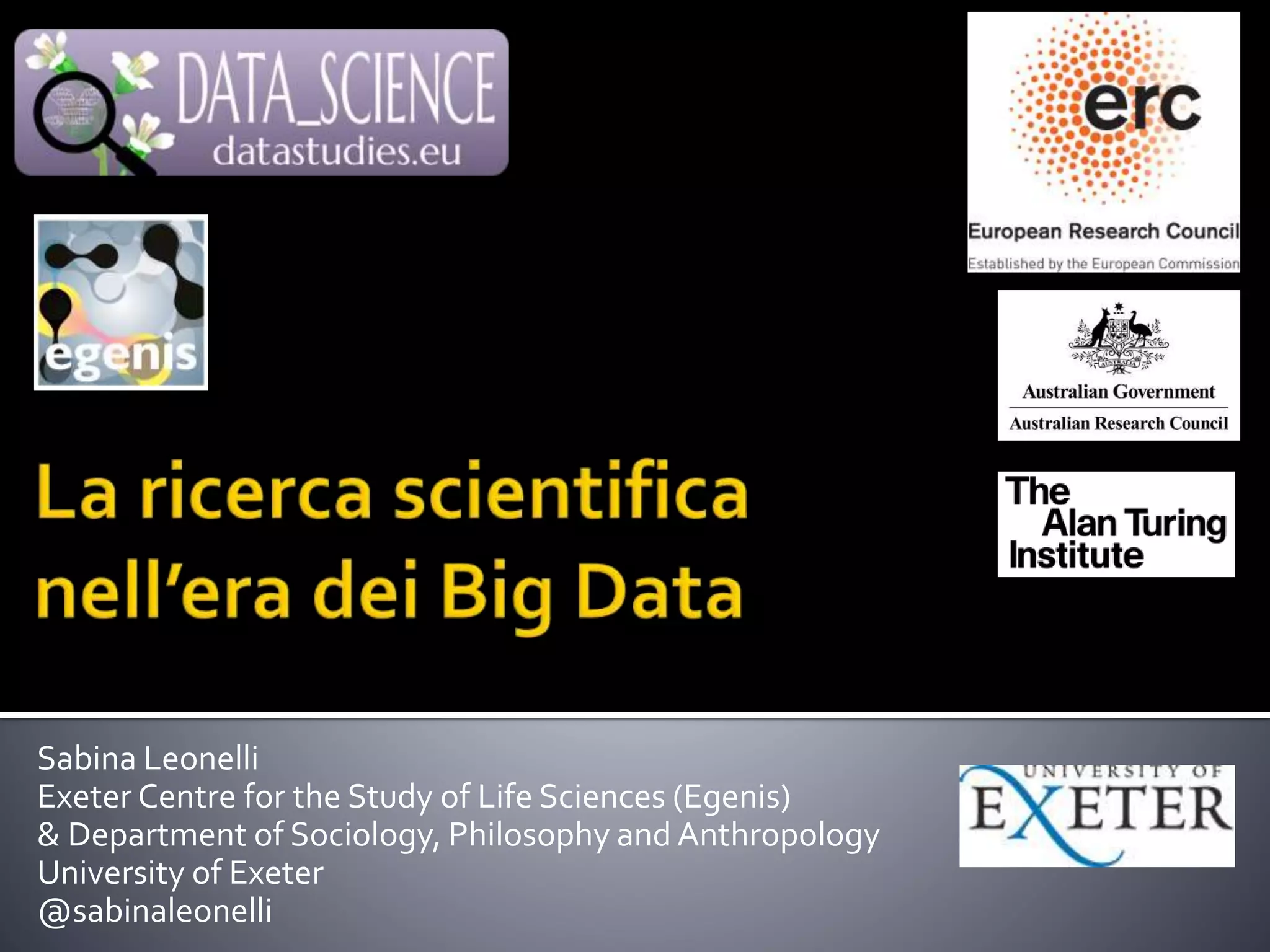The document discusses the transformative impact of new data technologies on research, emphasizing the need for effective data curation to enhance the reliability and usability of research findings. It highlights challenges such as biases, inadequate funding for data management, and the importance of ethical practices in data sharing and reuse. The text argues for the necessity of diverse methodologies, long-term sustainability of data infrastructures, and the fostering of public trust in scientific endeavors.









































![ Criteria for what counts as good data – even as data
altogether – vary dramatically even within the same
field
Data producers, curators, users make choices about
what constitutes data at each stage of their journeys
Data as relational: what counts as data varies in
relation to research situations [Leonelli 2015, 2016, 2019]
Any object can be considered as a datum as long as (1) it is
treated as potential evidence for one or more claims about
phenomena, and (2) it is possible to circulate it among
individuals/groups](https://image.slidesharecdn.com/torinobigdata-190923090539/75/La-ricerca-scientifica-nell-era-dei-Big-Data-Sabina-Leonelli-42-2048.jpg)


![ Building on Alison Wylie’s conditions for robust evidential
reasoning..
(1) security, (2) causal anchoring and causal independence, (3)
conceptual independence, (4) grounds for calibration and (5)
addressing divergence [Chapman andWylie 2016]
.. And adding:
(6) diversity of sources and subsequent handling methods (make
data journeys trackable)
(7) explicit valuing criteria for data production, dissemination and
reuse (debate which data get to travel; ethics and social concerns
are key to data re-usability and security)
(8) material anchoring where possible (link digital databases and
sample collections)
(9) critical use of standards (balance standardization with local
solutions to preserve system-specific methods)](https://image.slidesharecdn.com/torinobigdata-190923090539/75/La-ricerca-scientifica-nell-era-dei-Big-Data-Sabina-Leonelli-45-2048.jpg)





